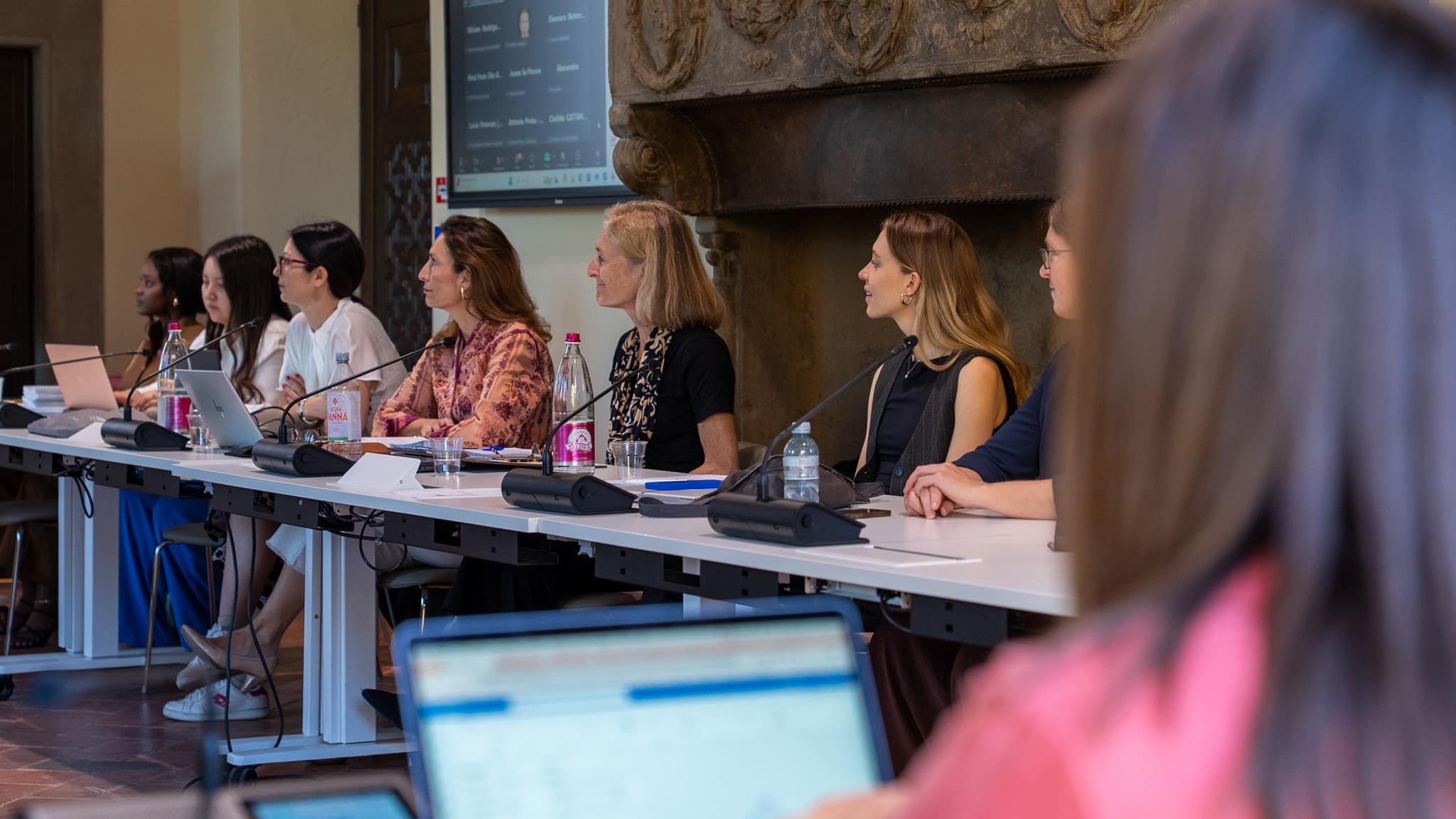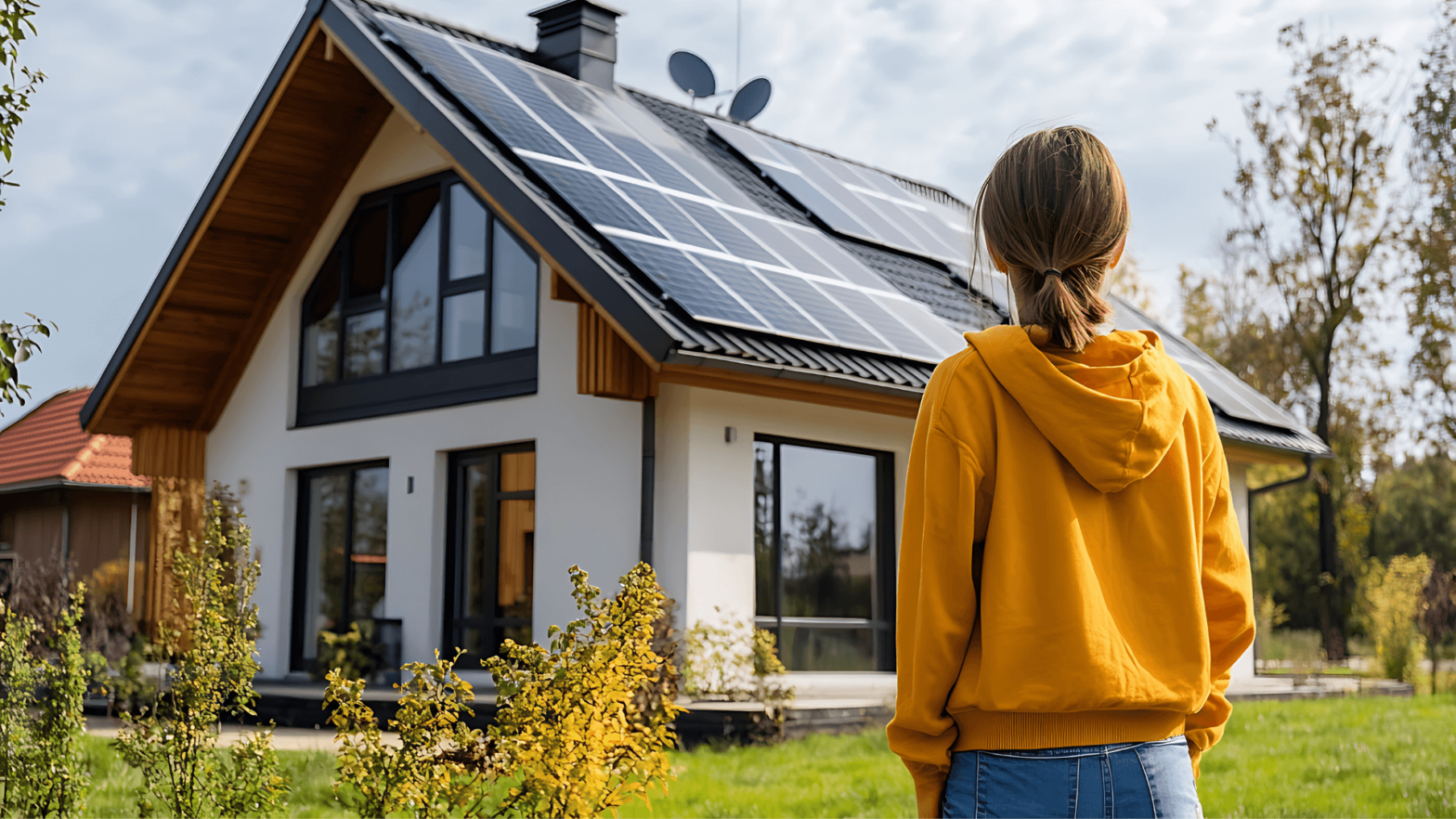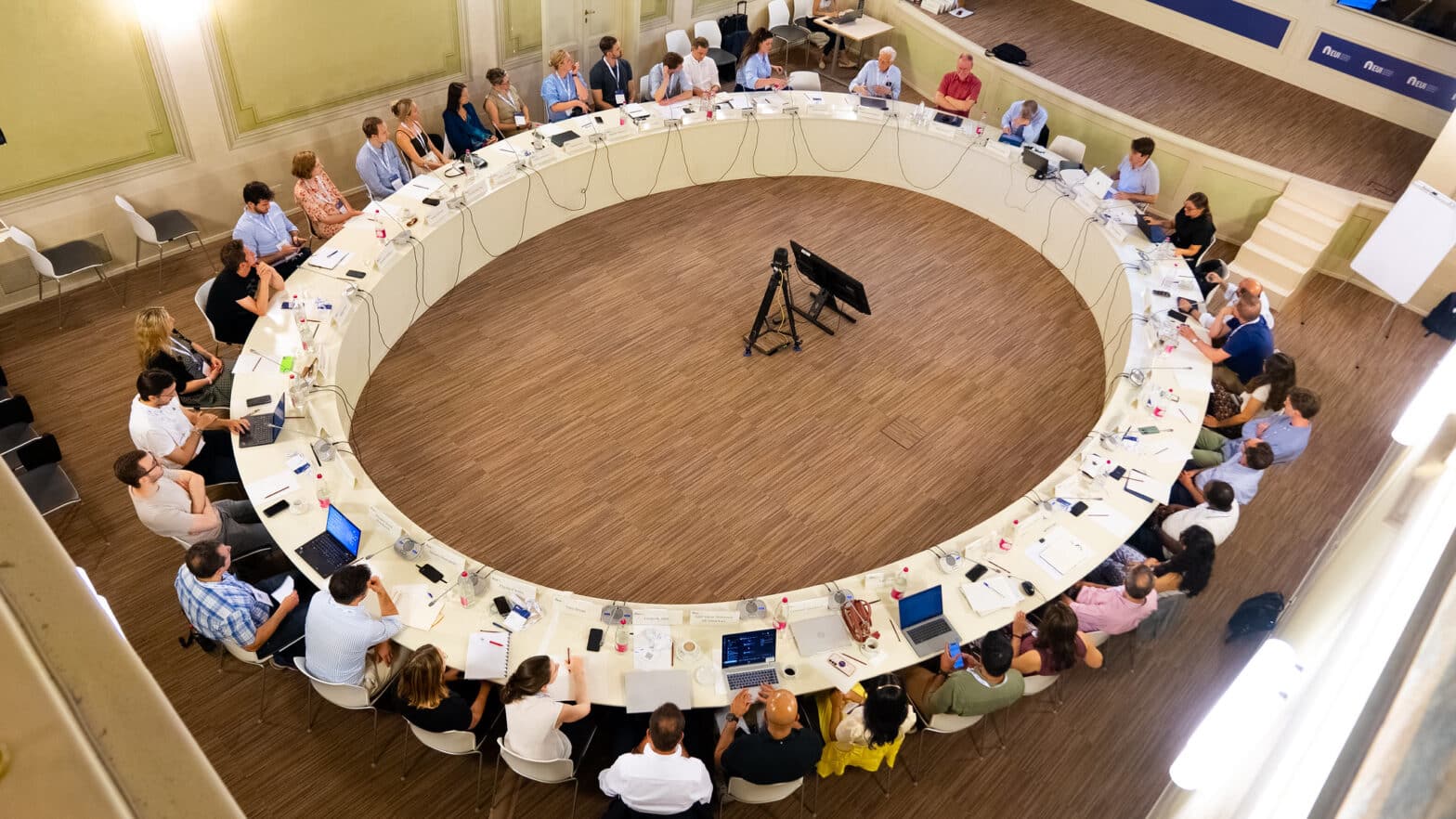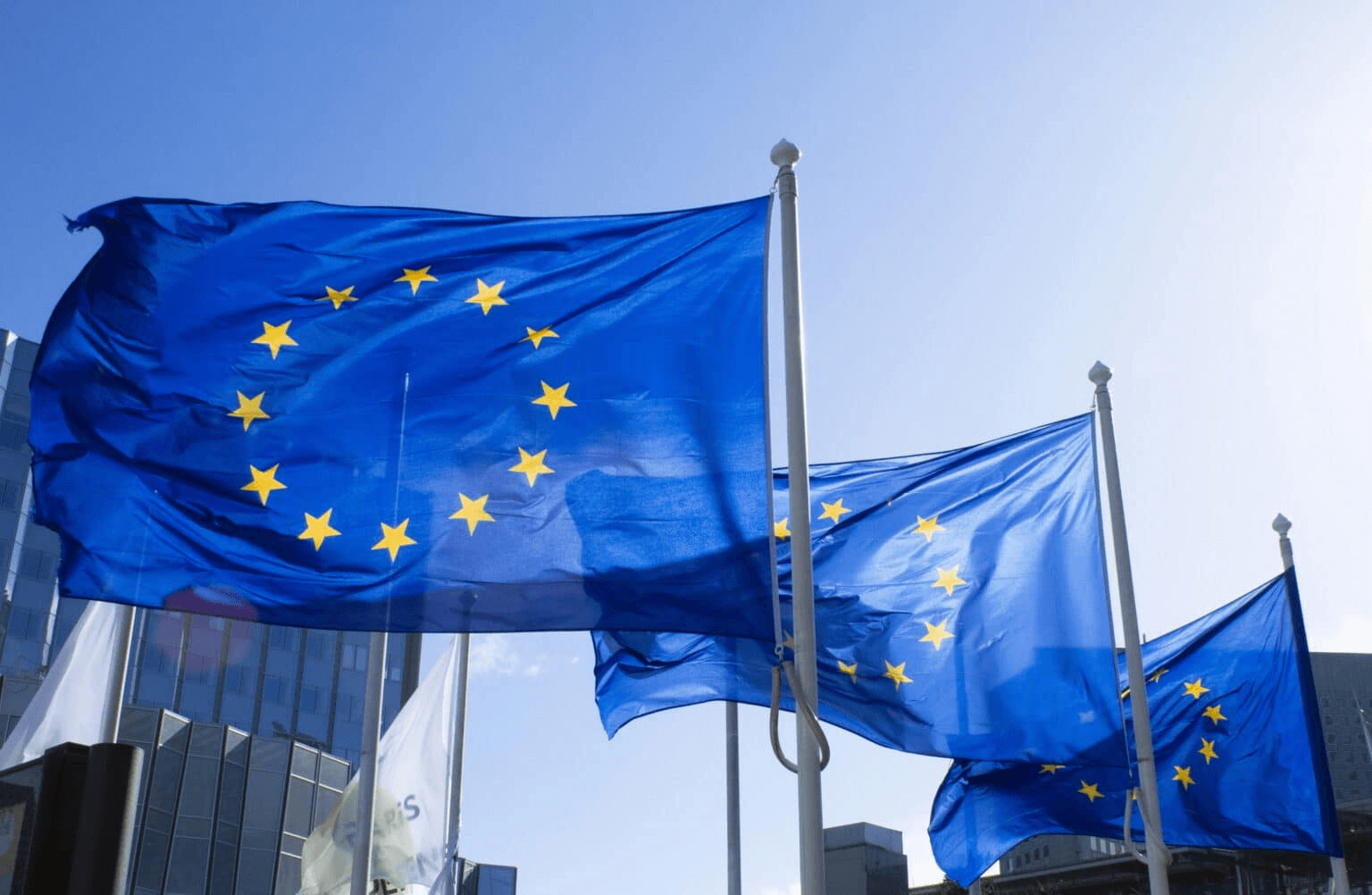Energy transition and sustainable development – leaving no woman behind?
Highlights from the event: LUCE Awards. Women for the Green Transition
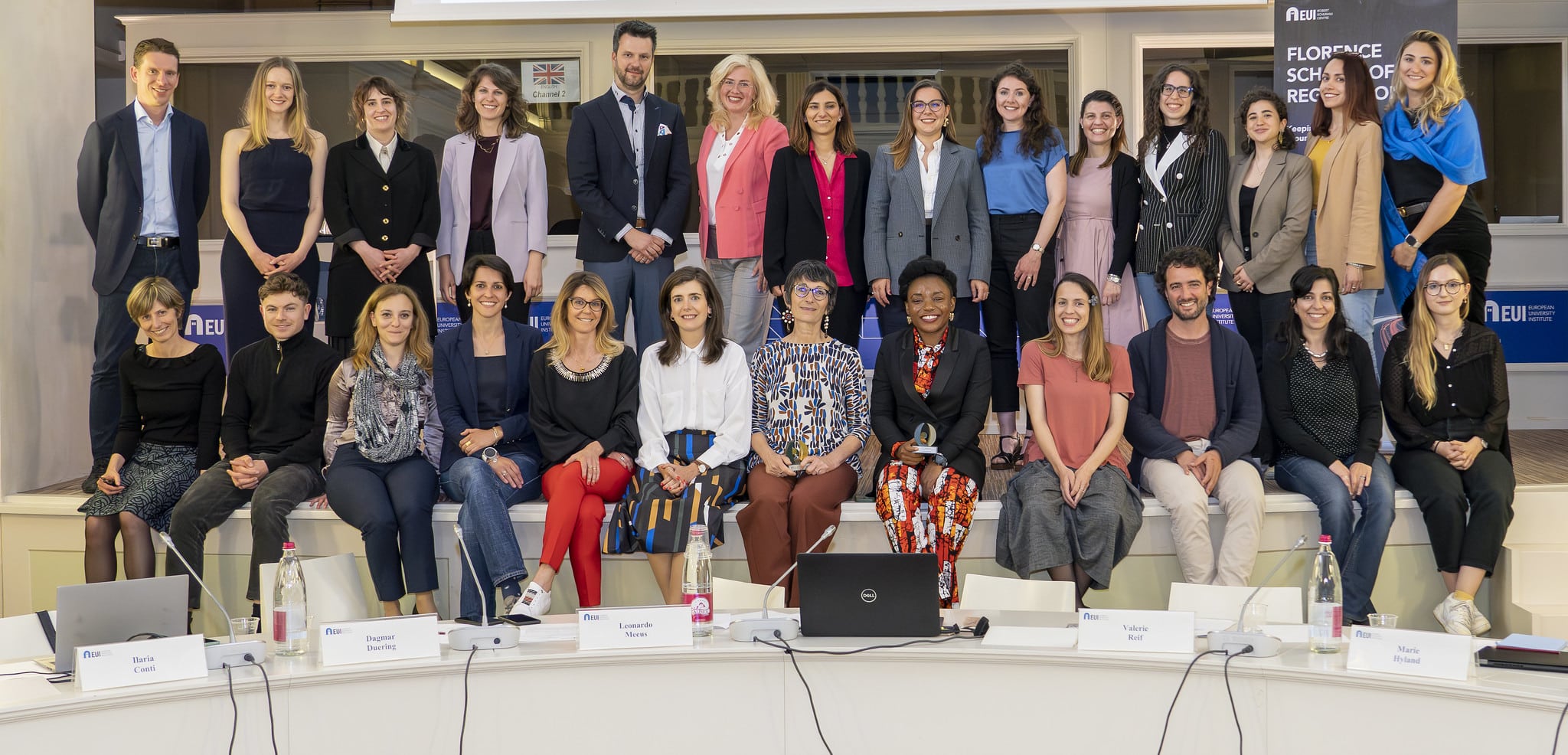
On 16 May 2023, energy experts gathered in Florence for the Lights on Women LUCE Awards ceremony, honouring two outstanding women for their achievements in pushing forward the energy, climate, and sustainability sectors.
Congratulations 👏 to @OnyiNzelu @ENGIE_EnergyAcc @EUinNigeria ➕Clara Poletti @ARERA_it @EU_ACER for #LUCE 💡 Awards 🏆 @EUI_FSR @Landwaerme in recognition of their achievements as women #energy professionals in #greentransition pic.twitter.com/W3BkhEiOl8
— Anna Sobczak (@sobczak_anna) May 22, 2023
In the context of the LUCE event, an expert panel discussed measures to advance the Just Energy Transition and illustrated on women's relevant experiences in Europe and Africa.
Background
In 2015, all UN Member States adopted the 17 Sustainable Development Goals, among them (No. 5) gender equality, (No. 7) affordable and clean energy, (No. 11) sustainable cities and communities, and (No. 13) climate action. In the same year, the Paris Agreement was adopted with the target to ‘limit the increase in global average temperature to well below 2°C, better 1.5°C above pre-industrial levels’.
As a committed party to the Paris Agreement, the EU created a long-term strategy with the EU Green Deal at its core. The Green Deal is a growth strategy for Europe, ensuring no net emissions of greenhouse gases by 2050, economic growth decoupled from resource use, and no person or place left behind. While the benefits of the energy transition will be more evident in the medium and long term, its costs will manifest in the short term and will have to be allocated already in the coming years. The EU Just Transition Mechanism is designed to provide financial support and technical assistance to those persons and regions most affected by the transition. The Just Transition Mechanism is more than funding; it also includes a governance framework and a platform for collaboration.
The Just Energy Transition affects more than Europe. It is a global endeavour with countries worldwide addressing the impacts of climate change and greening their economies worldwide. To close the circle, the Just Energy Transition does not only help to advance climate action; it also helps promote progress in line with the Sustainable Development Goals.
Experiences
Anna Sobczak, EU Fellow at the Florence School of Regulation and Policy Coordinator in the European Commission’s DG ENER, focused on aspects of Gender Equality, Empowerment and Justice in Green Energy Transition in the framework of the EU Green Deal. She introduced the audience to the EU’s Gender Equality Strategy 2020-2025 and connected the dots to gender equality in the energy sector, highlighting successful initiatives such as the Equality Platform for the energy sector and the gEneSys Project.
Marie Hyland, Research Officer at Eurofound, discussed the Gender Aspect of Energy Poverty. Based on recent research, she explained which social groups are more likely to struggle to afford utilities or fall into energy poverty. Marie also highlighted the need to analyse the effectiveness of the various support schemes adopted by Member States during the recent energy (price) crisis.
Carol Ofafa, Researcher at the African School of Regulation and Founder of the e-mobility start-up E-Safiri shared her personal experience with driving Africa’s transition to sustainable transport. She inspired the audience with the solutions her team has developed to overcome technical, regulatory, and economic hurdles to make reliable, accessible, and affordable charging solutions available to electric bike riders in Kenya.
Discussion highlights
The ensuing discussion highlighted the different perspectives to consider when discussing the gender aspects of the Just Energy Transition. It also showed that top-down and bottom-up initiatives exist and need to be aligned and coordinated to make the just transition a success.
Three important insights were related to:
- regulation and innovation
- skills and innovation
- women in research
The relationship between regulation and innovation
A lack of regulation has its advantages, especially for start-ups. It lets people innovate, and businesses invest. At a certain point, however, investors need a certain level of stability as they base their funding on an expected return on those investments. Consistent levels of standardisation and an adequate regulatory frameworks are needed for businesses to become established and thrive long-term.
Skills and innovation
Finding women in Africa willing to innovate and use new business opportunities is not a challenge. Women are ready and willing, keen to improve their families’ livelihoods and to care for their children while improving their futures. The idea behind start-ups like E-Safiri is to provide women with the right skills to participate in an innovative endeavour in an unfamiliar environment. One example of a good practice includes setting up training workshops co-organised with experts from manufacturing firms and research institutions to transfer expert knowledge to women on the ground.
Women in research
Encouraging women into invest in research and keeping them there has proven to be a challenge. The expert panel discussed multiple measures to increase the presence of women in research. First and foremost, young girls need to be encouraged from an early age to take interest in pursuing a research career. A good practice is revisiting school textbooks and questioning the messages they might be (unintentionally) sending. For example, showing only men in the role of professors engrains in children’s brains deeply gendered notions of male and female roles in society and research.
Positive policies that support women, such as better childcare and educational opportunities for women need to be consistently implemented to allow women to maintain their research positions. Unfortunately, with the COVID-19 pandemic, there was significant decline in female research than male research due to the fact women were taking on more family care work when day-care centres closed and children needed to stay home. As a society, we need to ensure that these facilities are provided and that, when they fail, everyone in the household takes up their equal share in family care.
Join the Energybase!
Women take initiative in building networks and actively looking for mentors and sponsors. The Lights on Women Energybase is one way to make female talent visible and connect experts worldwide.
Don’t miss any update on this topic
Sign up for free and access the latest publications and insights



